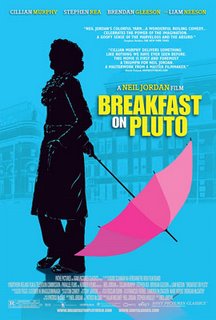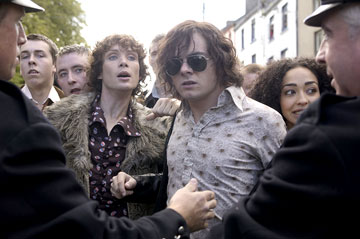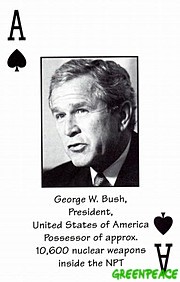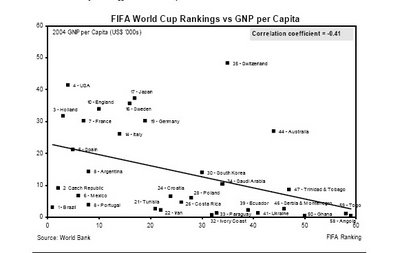Cemetry Gates

A dreaded sunny day
So I meet you at the cemetery gates
Keats and Yeats are on your side
A dreaded sunny day
So I meet you at the cemetery gates
Keats and Yeats are on your side
While Wilde is on mine
So we go inside and we gravely read the stones
All those people all those lives

Where are they now?
With the loves and hates
And passions just like mine
They were born
And then they lived and then they died
Seems so unfair
And I want to cry
You say: "ere thrice the sun done salutation to the dawn"
And you claim these words as your own
But I've read well, and I've heard them said
A hundred times, maybe less, maybe more

If you must write prose and poems
The words you use should be your own
Don't plagiarise or take "on loans"
There's always someone, somewhere
With a big nose, who knows
And who trips you up and laughs
When you fall
Who'll trip you up and laugh
When you fall
You say: "ere long done do does did"
Words which could only be your own
And then you then produce the text
From whence was ripped some dizzy whore, 1804
A dreaded sunny day
So let's go where we're happy
And I meet you at the cemetery gates
Oh Keats and Yeats are on your side
A dreaded sunny day
So let's go where we're wanted
And I meet you at the cemetery gates
Keats and Yeats are on your side
But you lose, 'cos weird lover Wilde is on mine..
- The Smiths
------------------------------------The Grave of Oscar WildeLocation: Paris, France------------------------------------- Irish poet and playwright Oscar Wilde (1854 – 1900) died in France and was originally buried in the unimpressive Bagneaux Cemetery. In 1909, determined to bury him in a place worthy of his legend, his admirers transferred Wilde's remains to Le Pere Lachaise. Shortly thereafter American sculptor Jacob Epstein undertook the feat of designing the monument for Wilde's grave. It took him approximately three years to complete, and in 1914 when Epstein finally unveiled his masterpiece, featuring an anatomically correct Egyptian-style male figure, the cemetery conservator deemed it indecent. A fig-leaf plaque was promptly fashioned to cover the sculpture's private parts. However, the conservator's decision was apparently "out-voted" by the public-at-large, and in 1922 the plaque was removed "without permission" by unknowns. Unfortunately, these unknowns carried out their mission a little hastily and ended up removing more than just the fig leaf. With a story like this, how could anyone resist a visit?
Irish poet and playwright Oscar Wilde (1854 – 1900) died in France and was originally buried in the unimpressive Bagneaux Cemetery. In 1909, determined to bury him in a place worthy of his legend, his admirers transferred Wilde's remains to Le Pere Lachaise. Shortly thereafter American sculptor Jacob Epstein undertook the feat of designing the monument for Wilde's grave. It took him approximately three years to complete, and in 1914 when Epstein finally unveiled his masterpiece, featuring an anatomically correct Egyptian-style male figure, the cemetery conservator deemed it indecent. A fig-leaf plaque was promptly fashioned to cover the sculpture's private parts. However, the conservator's decision was apparently "out-voted" by the public-at-large, and in 1922 the plaque was removed "without permission" by unknowns. Unfortunately, these unknowns carried out their mission a little hastily and ended up removing more than just the fig leaf. With a story like this, how could anyone resist a visit?
-------------------------------------
Yeat's Grave
Silenced by death in the grave
W.B. Yeats couldn't save
Why did you stand here
Were you sickened in time
But I know by now
Why did you sit here?
In the GRAVE
W.B. Yeats "Second"
Why should I blame her
That she filled my days
With misery or that she would of late
Have taught to ignorant men violent ways
Or hurled the little street upon the greant
Had they but courage
Equal to desire
Sad that Maud Gonne couldn't stay
But she had Mac Bride anyway
And you sit here with me
On the isle Inistee
And your writing down everything
But I know by now
Why did you sit here
In a grave ...
Why should I blame her
Had they but courage equal to desire
- The Cranberries
-------------------------------------
 After suffering from a variety of illnesses for a number of years, Yeats died at the Hôtel Idéal Séjour, in Menton, France on 28 January 1939, aged 73. The last poem he wrote was the Arthurian-themed The Black Tower.
After suffering from a variety of illnesses for a number of years, Yeats died at the Hôtel Idéal Séjour, in Menton, France on 28 January 1939, aged 73. The last poem he wrote was the Arthurian-themed The Black Tower.
Soon afterward, Yeats was first buried at Roquebrune, until, in accordance with his final wish, his body was moved to Drumcliffe, County Sligo in September, 1948, on the corvette Irish Macha. His grave is a famous attraction in Sligo. His epitaph, which is the final line from one of his last poems, Under Ben Bulben is "Cast a cold eye on life, on death; horseman, pass by!" Of this location, Yeats said, "the place that has really influenced my life most is Sligo." The town is also home to a statue and memorial building in Yeats' honor.
-------------------------------------
Adonais: An Elegy On The Death Of John Keats I weep for Adonais - he is dead!
Oh, weep for Adonais! though our tears
Thaw not the frost which binds so dear a head!
And thou, sad Hour, selected from all years
To mourn our loss, rouse thy obscure compeers,
And teach them thine own sorrow, say: "With me
Died Adonais; till the Future dares
Forget the Past, his fate and fame shall be
An echo and a light unto eternity!"
Where wert thou, mighty Mother, when he lay,
When thy Son lay, pierc'd by the shaft which flies
In darkness? where was lorn Urania
When Adonais died? With veiled eyes,
'Mid listening Echoes, in her Paradise
She sate, while one, with soft enamour'd breath,
Rekindled all the fading melodies,
With which, like flowers that mock the corse beneath,
He had adorn'd and hid the coming bulk of Death.
full text
----------------------------------------
 John Keats
John Keats
'Here lies One Whose Name is writ in Water'
John Keats is buried in the Protestant Cemetery, Rome. His grave is in a quiet corner close to the Pyramid. (Shelley is also buried in this cemetery.)
Keats left England in 1820, on the advise of his doctors, and headed for Italy. He was in the final stages of consumption. He arrived at Naples and then proceeded to Rome where he died on the 23 February, 1821. He was 25 years of age.
Keats requested that only the phrase:
"Here lies One Whose Name is writ in Water"
be inscribed on his headstone. (The phrase is thought to be taken from Beaumont and Fletcher's Philaster ('all your better deeds/ Shall be in water writ'). However, his two close friends Joseph Severn and Charles Brown, who cared for him during his illness, decided to add the following:
This grave contains all that was mortal, of a YOUNG ENGLISH POET, who on his Death Bed, in the Bitterness of his heart, at the Malicious Power of his enemies, desired these words to be Engraven on his Tomb Stone. Brown and Severn felt that Keats had been badly treated by the critics and his family. However, both men later regretted adding their own words to the headstone.ps. Thanks to Eric and Basak for bringing the issue of immortality and English poetry up.

































